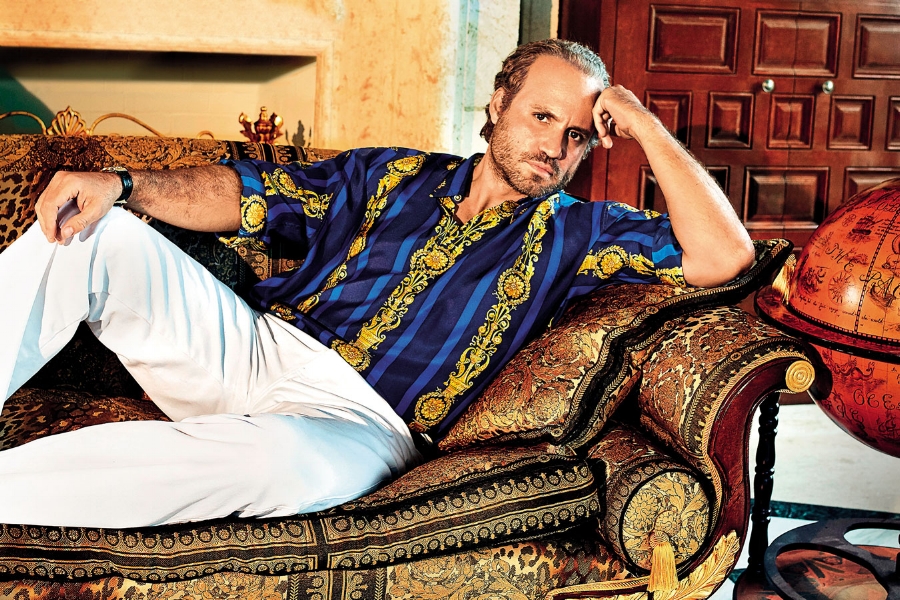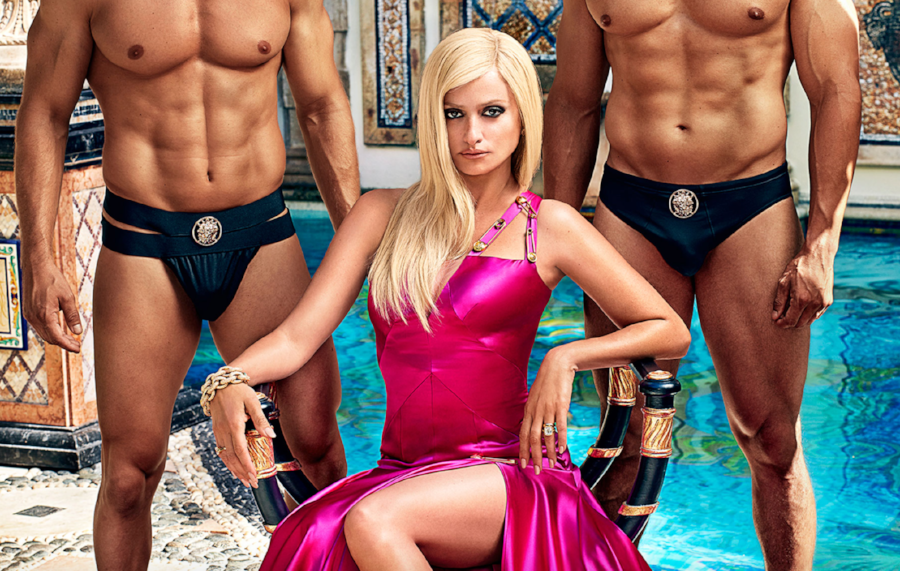
image: FX
Gianni Versace was gunned down on the steps of his Miami Beach mansion in July 1997 by serial killer Andrew Cunanan. Now, just over 20 years after the shocking tragedy, FX is building upon its award-winning American Crime Story series with “The Assassination of Gianni Versace,” a 9-episode take on “the takedown of the day’s most famous fashion designer.” While the network states that the series is “inspired by actual events,” the Versace family has unequivocally called foul … more than once.
A statement from the Italian clan released on Monday reads, “The Versace family has neither authorized nor had any involvement whatsoever in the forthcoming TV series about the death of Mr. Gianni Versace.”
The family, which clearly wants nothing to do with the impending series, further stated that since it did not authorize the book from which the FX series is partly drawn or participate in the writing of the screenplay, “This TV series should only be considered as a work of fiction.”
A subsequent declaration from the Versaces, released on Wednesday, proclaims: “Gianni Versace was a brave and honest man. Of all the possible portrayals of his life and legacy, it is sad and reprehensible that the producers have chosen to present the distorted and bogus version “
Regardless of an absence of Versace-authorization for the book upon which the series is based – Maureen Orth’s 2000 title Vulgar Favors: Andrew Cunanan, Gianni Versace, and the Largest Failed Manhunt in U.S. History – and in lieu of cooperation from the Versaces for the FX series (as indicated by their not one – but two – statements on the matter), the much-anticipated series has a fast-approaching debut date: January 17.
Much has been made of the series thus far; from the casting (Edgar Ramirez as Versace, Darren Criss as Cunanan and Penelope Cruz as Donatella Versace; Cruz says she had a “had a long conversation” with Ms. Versace prior to accepting the role) to the lack of casting (Donatella’s daughter Allegra will not be depicted; she was reportedly removed after demands from Donatella).
However, what has not been discussed, particularly in light of what appears to be increasing animosity from the Versace camp, is the legality of such an unauthorized rendition of the life and death of Gianni Versace.

Is This Legal?
Given the family’s bold statements distancing itself from the soon-to-air series, you may be asking, how – exactly – were writer and executive producer Tom Rob Smith and director/producer Ryan Murphy able to pull this off, legally? How were they able to avoid anticipatory litigation from the Versace family in an attempt to block the making of the series? And how are they not facing a lawsuit now after the series has been preliminarily viewed and reviewed by the press?
The answer is relatively simple (or as simple as the law can ever really be): The First Amendment, the constitutional doctrine that declares that “Congress shall make no law … abridging the freedom of speech, or of the press.”
In much the same way as authorized or unauthorized biographies enjoy strong First Amendment protections in the U.S., so, too, do biographic television or film works. These protections provide a publisher (or television network) with the ability to disseminate “newsworthy” material, including “entertainment materials concerning interesting aspects of a well-known individual’s identity,” as long as there is a reasonable relationship between the person’s identity and the subject of the story. First Amendment protections tend to be so strong that even “the famous Vietnam-era Pentagon Papers case failed though the government asserted that publication of the Defense Department’s documents jeopardized national security,” per the Chicago Tribune.
While we certainly do not have a U.S. military-centered (hypothetical) case on our hands, of course, we have matter of “public interest,” since the late Mr. Versace was certainly a public figure, and as professor Brian L. Frye of the UK College of Law in Kentucky tells TFL, “Even a quasi-news docudrama is the kind of factual reporting that states cannot prohibit without running afoul of the First amendment.”
Frye notes that “the fact that the series is ‘unauthorized’ is just irrelevant. While people like to talk about acquiring ‘life rights’ [to portray someone in film or television], there is really no such thing.” This is really just “an agreement not to sue for defamation,” per Frye, which is also irrelevant here since “you cannot defame a dead person.”
In any case, Frye says, “Gianni Versace was surely a public figure, especially in this context, so [the Versace family] would have to show knowing falsehood [on behalf of FX to prevail on such a claim].” The likelihood of that? Slim at best, given to “heavily researched and authenticated” nature of Orth’s book, according to a joint statement from producers Fox 21 Television Studios and FX Productions.
Right of Publicity?
Where the Versace family could fins some luck in toppling the FX series is in a right of publicity claim, according to Frye. The right of publicity is a legal doctrine that gives individuals – or their estates, in some states (such as Florida), if the individual at issue is deceased – considerable exclusive control over the commercial use of their name, likeness and other identity attributes. As for how strong of a case the Versace clan has here, it is probably slim, at best.
First of all, in order to make a case for a right of publicity violation, the use at issue must be “commercial” – i.e. an effort solely to sell a product or a service. This is distinct from an “editorial” or “literary” use. As a result, “writers can write, and film makers are free to make movies about historical figures and events without violating the publicity rights of the subjects,” states First Amendment/media attorney Jack Greiner.
And this is exactly what is at play here. As Frye points out, “Versace is the subject of this series, not a vehicle for endorsing it,” which is relevant because one of the core aims of right of publicity laws (which vary by state) is to guard famous individuals from having their identities or likenesses used to sell or promote a product or service without their authorization.
With this in mind, FindLaw aptly notes that even these publicity rights are trumped by the First Amendment. “Unauthorized biographies [and their on-screen counterparts] are protected by the First Amendment because the right of publicity cannot be used to stifle undesired discussion and legitimate commentary on the lives of public persons.”
After all, without such protections, Greiner posits, “How would anyone write a book or a film in any way critical of anyone if the author had to obtain the subject’s permission before publication?”
This is all to say that if the Versace family does not like the theme – or treatment – of the subject of its latest installation of the American Crime Story series, they do not have to watch it.











